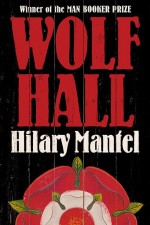Fantasy and Historical Fiction? The Same Thing, Really.
Bold statement – writing Historical Fiction and writing Fantasy (of certain sorts) are almost identical undertakings. A Game of Thrones and Wolf Hall? The same thing, really.
Think about it. Writers of both have to introduce and explain an unfamiliar world. Writers of Historical Fiction and writers of Fantasy can’t assume the shared knowledge that writers of contemporary fiction can.
Writers of contemporary fiction can take a great deal for granted. They don’t have to explain the social mores, the political structure, the clothing, the standard layout of buildings, methods of transport, forms of communication, common technologies, and thousands of other details of life that affect and intersect with their characters.
Not so with the writers of Fantasy and Historical Fiction. We have to help the reader come to terms with a world that could be alien in countless ways.
The first step for both of us, of course, is that we have to be familiar with the world we’re introducing. Here’s where our jobs may diverge a little. The Fantasy writer has to work from scratch, whereas the Historical Fiction writer doesn’t.
Let’s face it, most Fantasy secondary worlds are derived from history. Fantasy writers are always scouting around the world and going back and forward through time looking for fertile areas as a springboard into world creation. Take a time period and location that’s in turmoil, tweak the events and the names a little, add some magic and there’s the beginnings of a framework for a solid Fantasy trilogy or two, easily.
Therefore, both Fantasy and Historical Fiction writers spend a great deal of time researching, in order to be utterly cognisant with the world we’re about to introduce.
After this comes the delicate task of sifting in all this background detail. The challenge is to do this without boring the reader. After all, we’re writing fiction, not textbooks.
There is a higher challenge, though. The higher challenge is not just to do this without boring the reader, it’s doing it without the reader even noticing and therein lies the art.
The key term I use here in trying to define what writers in both genres are trying to do is that we’re trying to make our worlds convincing. Even though the world may be unfamiliar to the reader, we have to convince her/him that the setting is a believable one, one with a coherence and an underpinning that resonates with the human experience. The setting could be archaic, primitive, old-fashioned or exotic in unearthly terms, but writers need to give the reader entry into this world by making it a plausible one.
Done well, this accounts for some of the allure of both genres. They both take readers somewhere different, somewhere outside the ordinary, somewhere fresh and exotic where characters can play out their dramas in ways that extend the range of human actions, interactions and possibilities.
All in all, sometimes I think the only difference between writing Historical Fiction and writing Fantasy is that one has magic and one doesn’t. I’ll leave you to decide which.

